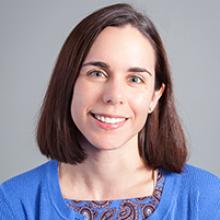Beyond Accountability: Improving the Use of Information to Support Teaching and Learning Through Continuous Improvement Cycles
 Ideally, systems that measure teacher performance provide teachers with timely, actionable data about their professional practices. Districts can use the information to help teachers strengthen their practices, and educators can monitor how improvements affect student learning.
Ideally, systems that measure teacher performance provide teachers with timely, actionable data about their professional practices. Districts can use the information to help teachers strengthen their practices, and educators can monitor how improvements affect student learning.
Sometimes, however, the focus is on compliance and accountability, rather than teachers’ professional development and growth. Further, components of evaluation systems are not always well aligned with other district goals and priorities outside of the system, such as rigorous, standards-based instruction.
In this report, AIR experts share their findings from the two-year Beyond Accountability continuous improvement project, which was funded by the Bill & Melinda Gates Foundation. With AIR support, four school districts identified a specific problem of practice and used plan-do-study-act (PDSA) cycles, an iterative process, to develop, test, and revise their strategies to address that challenge.
The report includes profiles for each school district, as well as lessons learned by both AIR and the districts. It also provides tools and materials, such as protocols and project templates, that AIR used with the districts during the project.
Key Lessons Learned
- Leadership commitment, participant buy-in, and a culture of trust and collaboration are crucial.
- Districts and schools should concentrate on what they can realistically achieve to build capacity for continuous improvement.
- Networked improvement communities, communities of practice or hybrid networks should be a fundamental approach to continuous improvement, and are particularly useful for getting peer feedback.
- Facilitating cycles of continuous improvement is intensive work, and key questions remain about how districts and schools can sustain continuous improvement.
